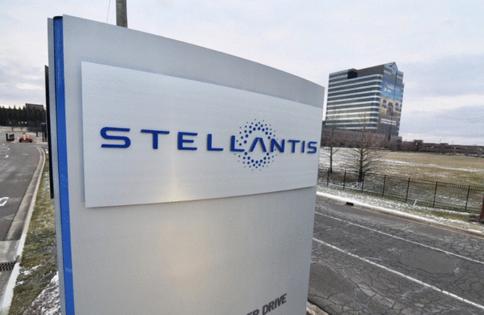Stellantis financial chief explains Tavares departure, talks Trump tariffs
Published in Automotive News
A senior Stellantis NV executive said Wednesday that CEO Carlos Tavares' recent departure from the automaker could be attributed to his disagreements with the company's board about short-term business tactics, as well as conflict over how to interact with outside stakeholders such as dealers, suppliers, unions and governments.
The business disagreements were related to "what actions should be taken in regard to short-term metrics versus longer-term benefit of the company," Doug Ostermann, the automaker's chief financial officer, said during a livestreamed Goldman Sachs conference. He added that in terms of stakeholder relationships, "those are areas where I think clearly we need to build back trust" following the CEO's resignation on Sunday.
"I think there's a strong desire among the management team today to really work on that (rebuilding trust), and it'll take time, but I think that's an area that we wanted to to address pretty directly," said Ostermann, who took over as CFO in October during a prior management reshuffle after having served as the company's China chief operating officer.
Tavares had long taken a hard-nosed approach with outside groups such as suppliers and dealers, especially when it came to cutting costs. The 66-year-old was expected to retire when his contract ended in early 2026, but ultimately departed early due to the differing views with the board. Stellantis this week laid out a plan to find his replacement in the coming months and appointed a committee led by Chairman John Elkann to run the company in the interim.
Problems in the United States market, including bloated Chrysler, Dodge, Jeep and Ram inventories, have hurt the automaker's performance this year, but Ostermann said a recovery plan is ahead of schedule. He confirmed the company's updated 2024 financial guidance, which includes an adjusted operating income margin of at least 5.5%, which was previously reduced from double digits.
The company has already exceeded its goal of bringing inventories below 330,000 by the end of this year, and by the end of November, he said the figure stood at about 310,000. Those reductions have been accomplished in part by offering more incentives and adjusting prices, as well as pausing vehicle production at several U.S. factories.
"We need to be able to show the industry and the investor community really what our business is capable of," Ostermann said. "And certainly this year is not representative of that."
The CFO also acknowledged that many of the company's challenges this year could be attributed both to gaps in its product lineup — "we have been blank in some very key, opportunistic segments" — as well as vehicle prices that were $2,000 to $3,000 above competitors. Both problems are being addressed, he said, though some fixes will take awhile to materialize. A replacement for the Jeep Cherokee, which was discontinued last year and had long filled the highly popular midsize SUV segment, is coming and will include a hybrid variant, but it won't arrive until midway through 2025, for example.
Ostermann said Stellantis is preparing for potentially higher tariffs under the coming Donald Trump administration, given the automaker makes roughly 40% of its products in Canada and Mexico. Trump recently threatened 25% tariffs on goods imported from the two countries.
The company does have available production capacity in the U.S., Ostermann said, which could allow it to pivot more of its vehicle production stateside — including in the Detroit area and in Illinois, where the company owns a shuttered plant — if Trump follows through with his tariff threats. He said Stellantis has a "more flexible footprint" that could allow shifts to the U.S. more easily than some of its competitors.
"A lot of our Ram products, we have industrialized in Michigan and the Detroit area, but we also have them industrialized in Mexico," he said. "So there's opportunities to shift some of the mix more into the the plants where we've already industrialized the product in both locations ... But we also have some unallocated plants. For instance, in Belvidere, Illinois, we have capacity around, (where) we could make those shifts."
The United Auto Workers union is threatening to strike Stellantis over the company's delay in reopening Belvidere under terms of the national contract negotiated last year.
©2024 www.detroitnews.com. Visit at detroitnews.com. Distributed by Tribune Content Agency, LLC.








Comments